Stress in Pet Birds
Updated on 04/26/24
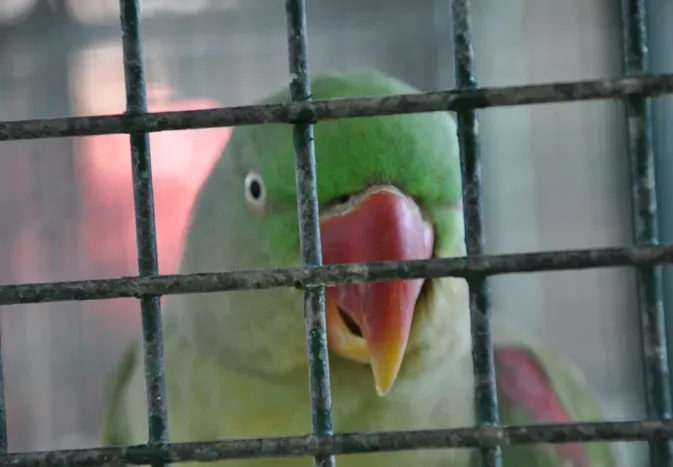
Unlocking the Secrets of Avian Anxiety: A Comprehensive Guide to Stress in Pet Birds
Introduction
The bond between pet bird owners and their feathered companions is undeniable, but amidst the moments of joy and enrichment, it's crucial to recognize the potential for underlying stresses that can compromise their well-being. Understanding and addressing stress in pet birds is essential for fostering a harmonious and fulfilling relationship. This comprehensive guide delves into the multifaceted nature of avian anxiety, empowering bird owners with the knowledge and strategies to promote tranquility and contentment in their beloved birds.
Recognizing the Signs of Stress in Birds
Pinpoint the subtle and overt cues that may indicate stress in your pet bird. Common signs include:
* Behavioral Changes: Anxiety can manifest in altered behaviors such as excessive vocalizations, feather plucking, pacing, or avoidance of favorite activities.
* Physical Symptoms: Stress can lead to physical ailments like regressed appetite, changes in weight, feather loss, and digestive issues.
* Hormonal Imbalances: Cortisol, a stress hormone, can disrupt hormone levels, affecting appetite, sleep patterns, and immune function.
Understanding the Triggers of Stress in Birds
Identifying potential triggers is key to minimizing stress in pet birds. Common factors include:
* Environmental Factors: Sudden changes in routine, loud noises, or disruptive visitors can be unsettling to birds.
* Social Dynamics: Aggression between flock members, lack of companionship, or inadequate stimulation can contribute to anxiety.
* Medical Conditions: Underlying health issues, such as pain or illness, can induce stress and hinder recovery.
* Diet and Nutrition: Improper or inadequate nutrition can lead to metabolic imbalances and stress-related health problems.
Creating a Stress-Free Environment
Establishing a tranquil and predictable environment is imperative for reducing stress in pet birds. Consider these strategies:
* Establish a Daily Routine: Birds thrive on stability. Maintain consistent feeding, playtime, and bedtime schedules to provide a sense of predictability.
* Provide Ample Space: Overcrowded cages can cause stress. Ensure your bird's enclosure has sufficient space for movement and exploration.
* Offer Mental Stimulation: Engage your bird with interactive toys, foraging puzzles, and regular out-of-cage time to stimulate their minds and prevent boredom.
* Minimize Noise and Chaos: Create a calm and noise-free environment by avoiding sudden movements, loud noises, or prolonged exposure to loud music or conversations.
* Respect Personal Boundaries: Avoid overhandling or forcing physical interactions with your bird. Provide them with a retreat area where they can seek privacy when desired.
Addressing Social Needs
Birds are social creatures that require companionship and interaction. Addressing their social needs is crucial for overall well-being and stress reduction.
* Provide Companionship: If possible, house multiple birds of the same species to promote social interaction and flock behavior.
* Interact Regularly: Spend quality time with your bird, engaging in activities they enjoy, such as play, grooming, or simply talking to them.
* Encourage Flock Bonding: Establish a clear hierarchy within the flock by ensuring each bird has a designated perch and feeding area. This promotes stability and reduces potential conflicts.
Ensuring Proper Nutrition
Dietary deficiencies or imbalances can contribute to stress-related health issues in birds. Proper nutrition is essential for their overall well-being and stress reduction.
* Feed a Nutritious Diet: Provide a balanced diet that includes high-quality pellets, fresh fruits, vegetables, and occasional treats.
* Monitor Water Intake: Ensure your bird has access to fresh, clean water at all times. Dehydration can lead to stress and health problems.
* Consider Supplementation: Consult with an avian veterinarian about the benefits of supplements, such as vitamins, minerals, or probiotics, to enhance your bird's health and reduce stress levels.
Medical Management of Stress
In some cases, medical intervention may be necessary to address underlying medical conditions that contribute to stress in birds.
* Veterinary Examinations: Regular veterinary examinations are essential for detecting and treating health issues that may be causing stress.
* Medications: Anti-anxiety medications may be prescribed in severe cases of stress or anxiety disorders. However, these medications should be used judiciously and under veterinary supervision.
* Behavioral Modification: Behavior modification techniques, such as counter-conditioning and positive reinforcement, can be employed to address stress-related behaviors and promote positive changes.
Conclusion
Understanding and addressing stress in pet birds is paramount for fostering their well-being and maintaining a harmonious relationship. By recognizing the signs of stress, identifying triggers, and implementing practical strategies, bird owners can create a stress-free environment and ensure their feathered companions thrive in a happy and healthy home. Remember, a stress-free bird is a content bird, and a content bird is a joy to behold.
Explore More Pets

Small Bird Breeds
Gloster Canary: Bird Species Profile

Small Bird Breeds
Java Finch: Bird Species Profile
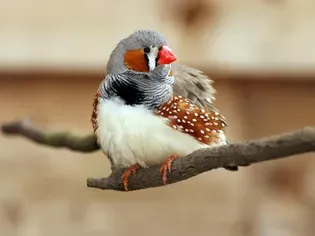
Small Bird Breeds
Zebra Finch (Chestnut-Eared Finch): Bird Species Profile

Small Bird Breeds
Alexandrine Parakeet: Species Characteristics & Care
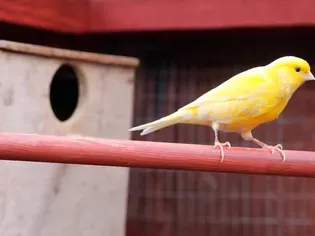
Small Bird Breeds
Canary: Bird Species Profile
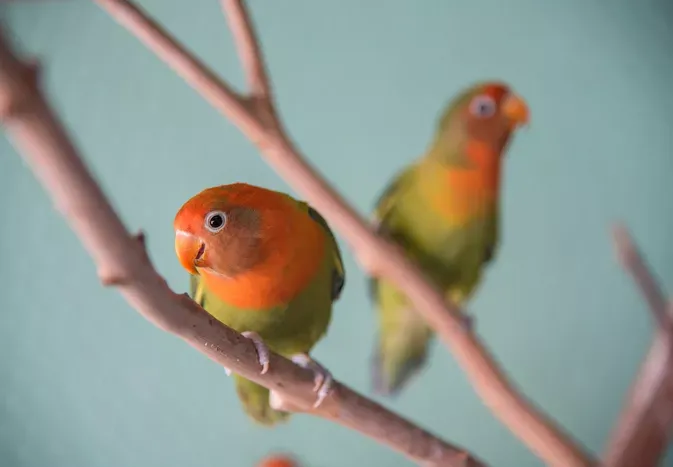
Small Bird Breeds
Lovebird (Pocket Parrot) Species Profile

Small Bird Breeds
A Guide to Pet Budgie Birds
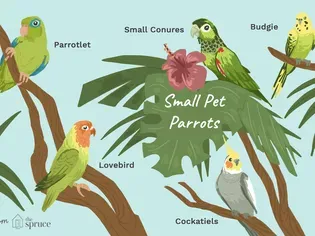
Small Bird Breeds
Types of Small Parrots